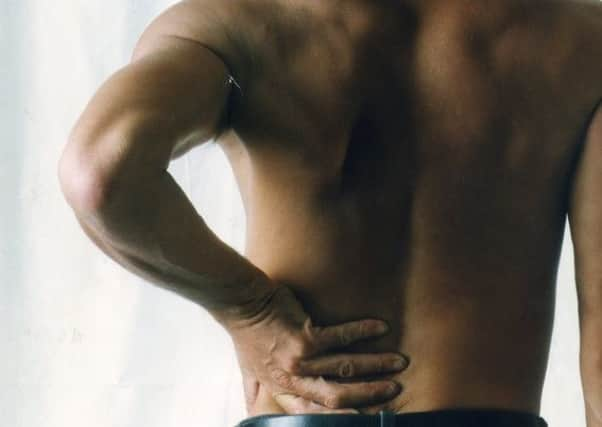Patients urged to exercise; cut down painkillers


The Scottish Intercollegiate Guidelines Network (Sign) said those taking often powerful and addictive painkillers should have their drugs reviewed at least once a year.
The guidelines also recommend that patients be offered the chance to take part in physical activity as a way of treating their chronic pain, as well as pain management programmes to help them cope.
Advertisement
Hide AdAdvertisement
Hide AdIt comes after some experts have raised concerns about patients taking strong painkillers and becoming addicted to the drugs after using them for long periods.
Sign, part of Healthcare Improvement Scotland, said treating chronic pain – defined as pain that continues for more than 12 weeks despite medication or treatment – was widely recognised as one of the biggest challenges facing the NHS in Scotland and the economy as a whole.
The guidelines said that doctors should conduct at least an annual review of a patient’s medication to determine the success of a particular drug, or more frequently if drug treatments change or the pain continues.
Medics should also regularly review the use of strong opioid medications – such as morphine – to treat patients with chronic low back pain or osteoarthritis, and get specialist advice if there are concerns about patients having no pain relief despite increased medication doses.
Efforts to help patients manage pain should also involve encouraging patients to be active and to try out all forms of exercise and exercise therapies, the authors said.
Dr Lesley Colvin, consultant in pain medicine at Edinburgh’s Western General Hospital, who chaired the Guideline Development Group, said: “The recommendations recognise that the best person to both understand chronic pain and to work to find ways to manage it, is the patient.
“Everyone is different – while one particular treatment may work very effectively in one individual, it may not work at all in another.
“As well as the physical sensations of pain, patients also often experience changes in their mood and what they are able to do, impacting on their work, family and friends.”
Advertisement
Hide AdAdvertisement
Hide AdHealth boards across Scotland will now be encouraged to implement the recommendations.
Margaret Watt, chair of the Scotland Patients Association, said that it was important that doctors followed the guidance so patients were not left on treatments which could be causing them harm.
“We should be listening to patients as they know their own bodies,” she said.
“All drugs can have side effects and they need to be regularly reviewed.”